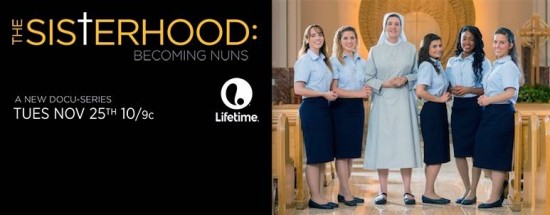Two perspectives I might not ordinarily put into one post, but both really deserve your attention and both are relevant to headlines, in their own way.
First, apparently last night Glenn Beck opined (or, as someone said to me, “tiptoed”) that the horrors we’re seeing in Japan may be God telling us that we’re bad. Theologian Tim Muldoon has a different — and very thought-provoking — take on Japan, natural disasters and end-times:
What if tsunamis are a reminder that human beings really must think of themselves as being in a collective contract with God? That our lives are part of a trans-historical narrative, and that our part is to bring about its final end? And that in the process it is God himself constantly in-breaking to help us do exactly that? . . .What if, in other words, the truth is that to the extent that we let God “easter in us”—transform us into martyrs (Greek, “witnesses”), either in life or in death—we are helping bring about the salvation of the world?
Think about that – it’s a lot to ponder!
My Evangelical friend, Jerry Wilson, meanwhile, has a gently-voiced notion:
There are no safe, pat answers to these questions; no cutesy clichés to satisfy a pained cry of why. However, there is an answer: God Himself, born as a man, abandoned, beaten and executed on a cross. In Him, in Christ we seek solace for the agony and injustice suffered in a fallen world, knowing there will be healing in the eternity that awaits.
This isn’t pie in the sky by and by when we die. There is genuine love, compassion and care available for us here. However, it is not always a flash of divine intervention in our lives. It is most often expressed when we take a moment to love, offer compassion and provide aid for one another. If we who believe do not offer this love, who will do it for us?
I have been struck by the calm grace and dignity of the Japanese people in all of this. Recalling the hysteria we witnessed in Wisconsin over the past few weeks over a reduction in bargaining power for pensions and perks, one can’t help but compare and contrast: the Japanese have lost everything, and they are orderly, contained, dignified – not looting, not screaming and or acting out. Last night I couldn’t help but wonder if we are not all meant to learn something from Japan, about how to handle genuinely life-upending times that may be in our futures.
On a different, but still topical note, Max Lindenman has some very interesting thoughts about types of priests and why no one “type” can is better than another:
Last year I attended a Mass celebrated by a young priest for whom many observers in the diocese were predicting an illustrious future. He was wearing what I can only describe as the Fr. Corapi Starter Kit. Along with the aggressively shaven dome, he sported a goatee fit for an outlaw biker or a king’s musketeer. He did not walk; he strode. He did not speak; he intoned.
He informed us that he made it his practice, upon visiting a college campus, to dress in his cassock and pace the grounds while reciting the rosary out loud.
Now I rather love priests with a bit of Spencer Tracy gruffness to them, but I love the soft-spoken sorts, too. And I think Lindenman also appreciates all sorts of priests, but he worries that a self-conscious manliness comes with its own set of cautions:
I saw those buttons pressed down to nubs in the subprime mortgage industry, which ranked, in terms of self-consciously masculine milieux right below the bass section of the Waffen-SS glee club. The language of business was the language of sexual potency. In industry jargon, one could opt either for the “hard” or the “soft” sell. Hard selling meant closing deals speedily, with force and authority—see Alec Baldwin in Glengarry Glen Ross, for an ideal representative of the type. Soft selling meant offering tea and sympathy. […]
Make no mistake, I am not suggesting that the young priests are in the business of fleecing homeowners, or anyone else. But subprime does, I think, have a lesson for the priesthood. It’s this: once you polarize hard and soft, once you internalize those polarities as good and bad, then your whole value structure will become distorted, and your self will follow. Once you start conceiving missions that can only be accomplished with a stiff arm and a strut—that’s when you run the risk of becoming someone you don’t recognize, and couldn’t possibly like.
Oddly enough, Fr. Mychal Judge was one of the first on the ground to die in the mess of 9/11. And one of the first to die in Japan’s initial earthquake was a priest, too, Canandian missionary Father Andre Lachapelle. I suspect that no matter what “types” make up our priesthood, He-Man or Sensitive, the great majority of them will prove to be made of the right stuff when crisis comes.
Father James Martin: Why Do We Suffer?
Most of all, that God could somehow be with me through times of pain, and small signs of hope could become apparent when I accepted the reality of suffering. In vulnerability, in poverty of spirit, in brokenness, we are often able to meet God in new and unexpected ways. Perhaps this is because we are more open to God’s presence: when our defenses are down, when we have nothing left, we are more open. This is why people who suffer are sometimes seen as becoming more religious or spiritual. They are not becoming more irrational, but more open.
This is not the “why” of suffering, nor does it “explain” suffering; but it can sometimes be part of the overall experience.
More:
A priest dead, a church “drowned”
Earthquake epicenter near Marian Shrine
Related:
The Stuff our Priests are made of












